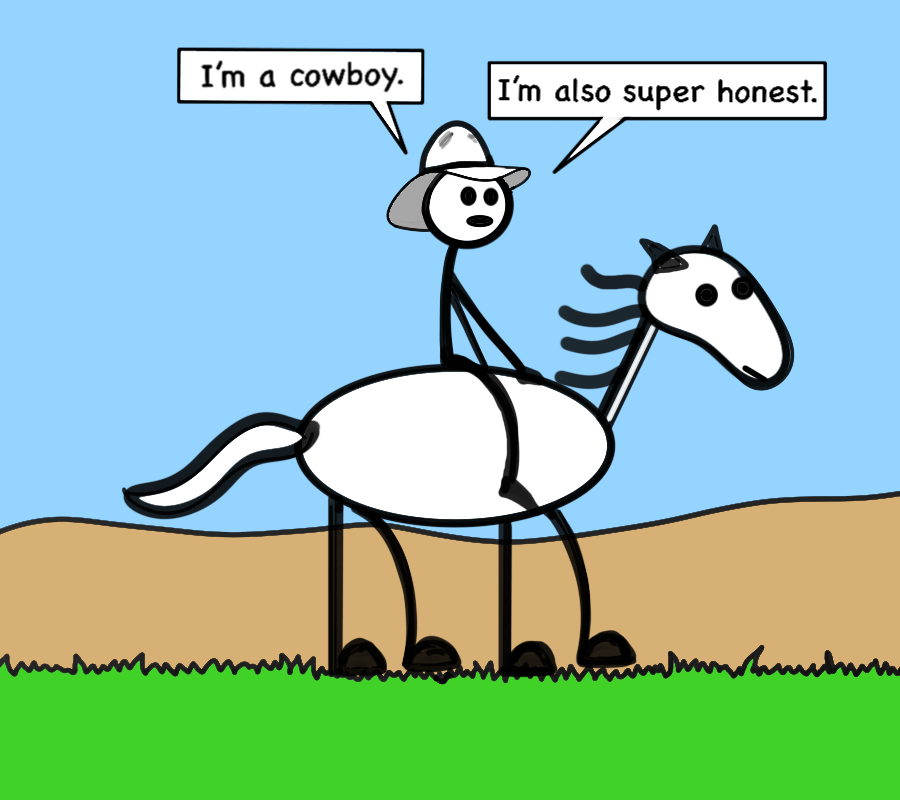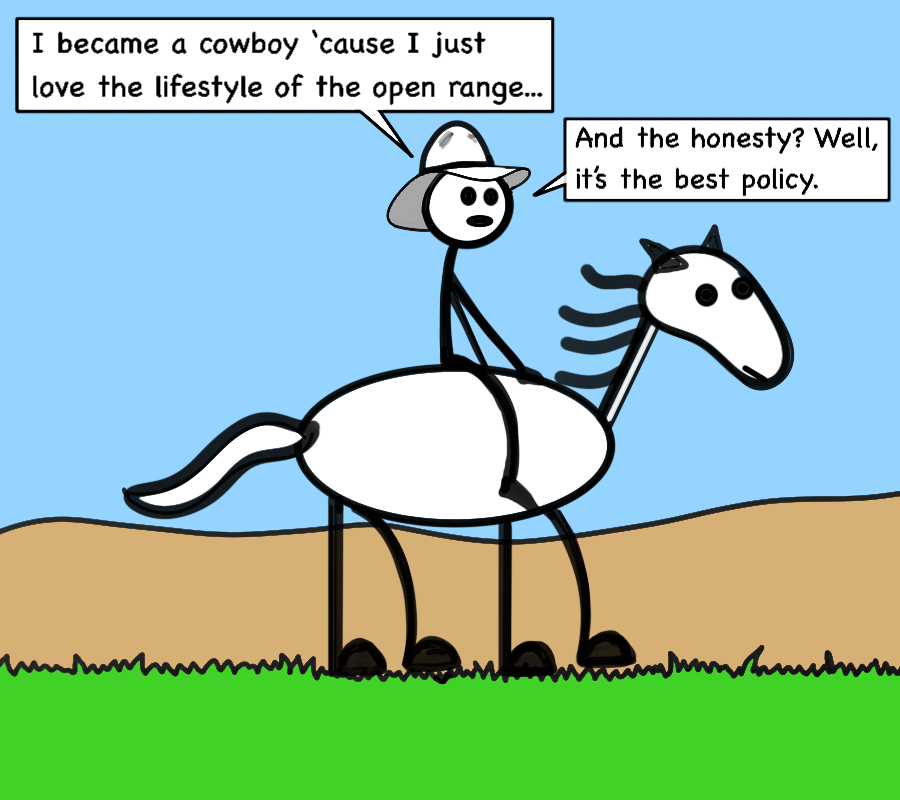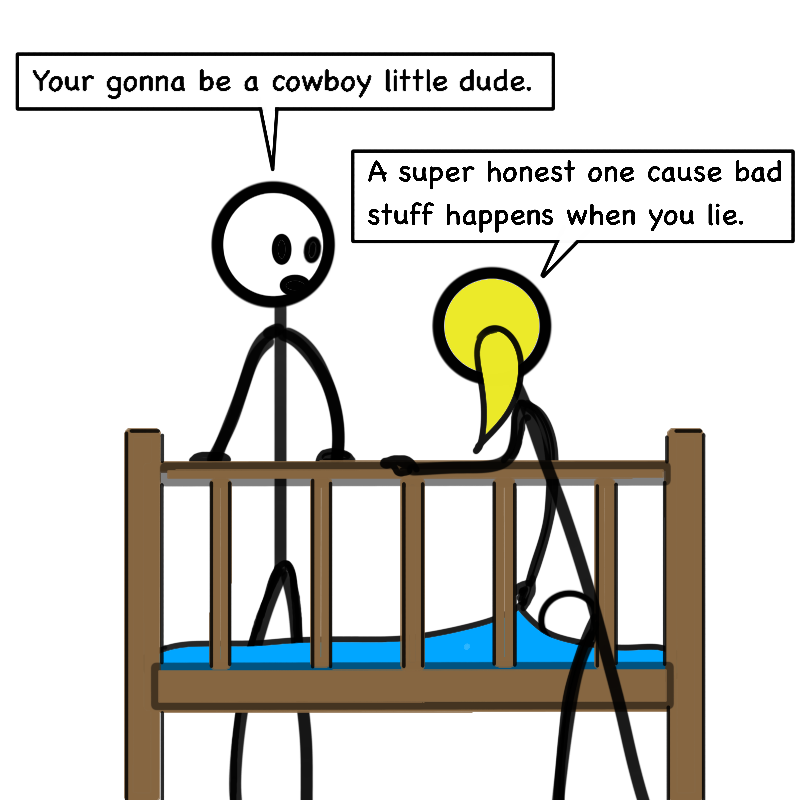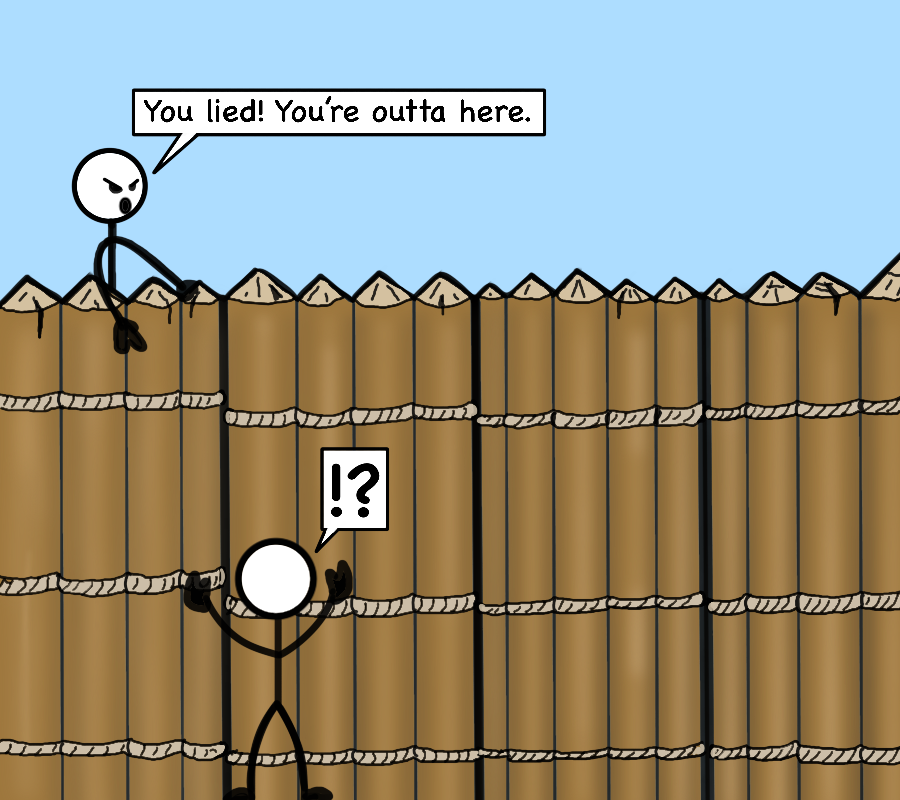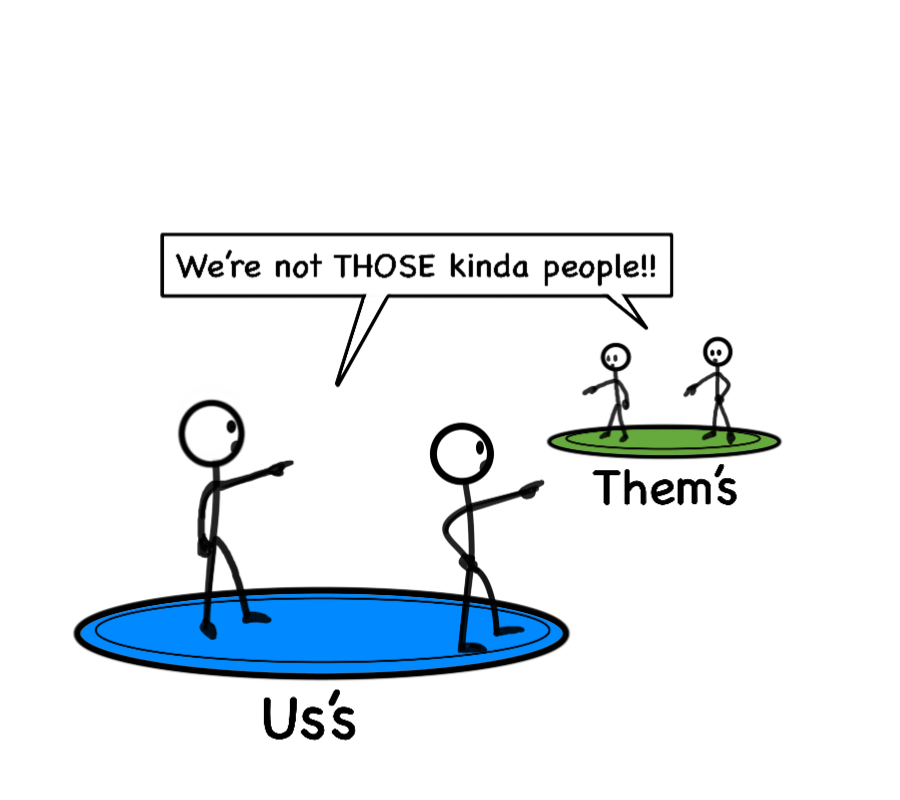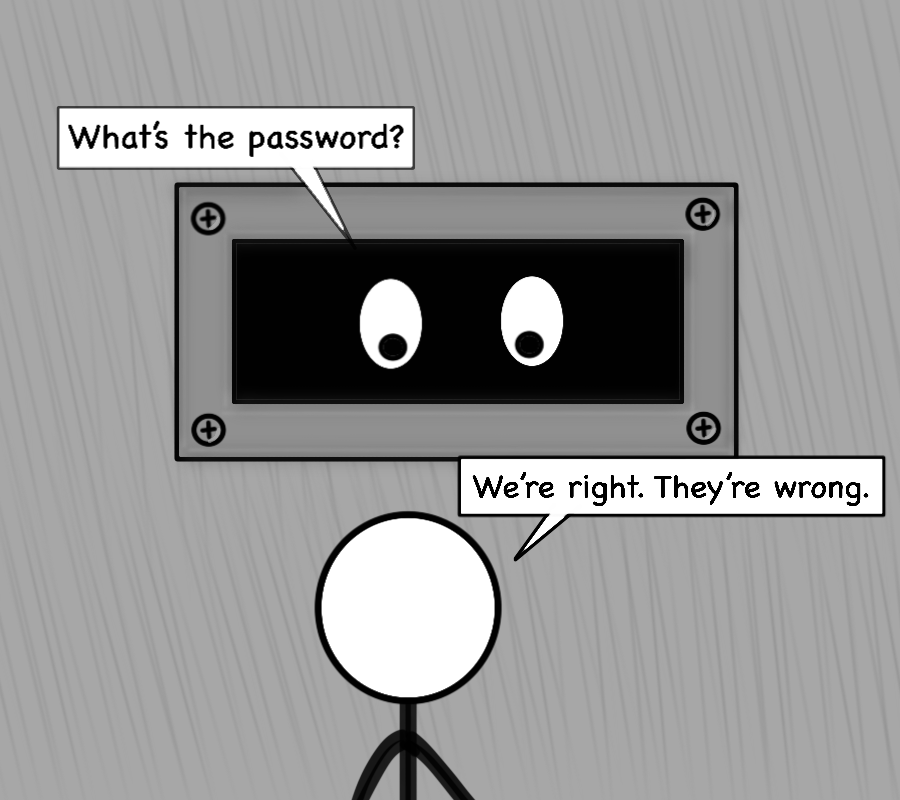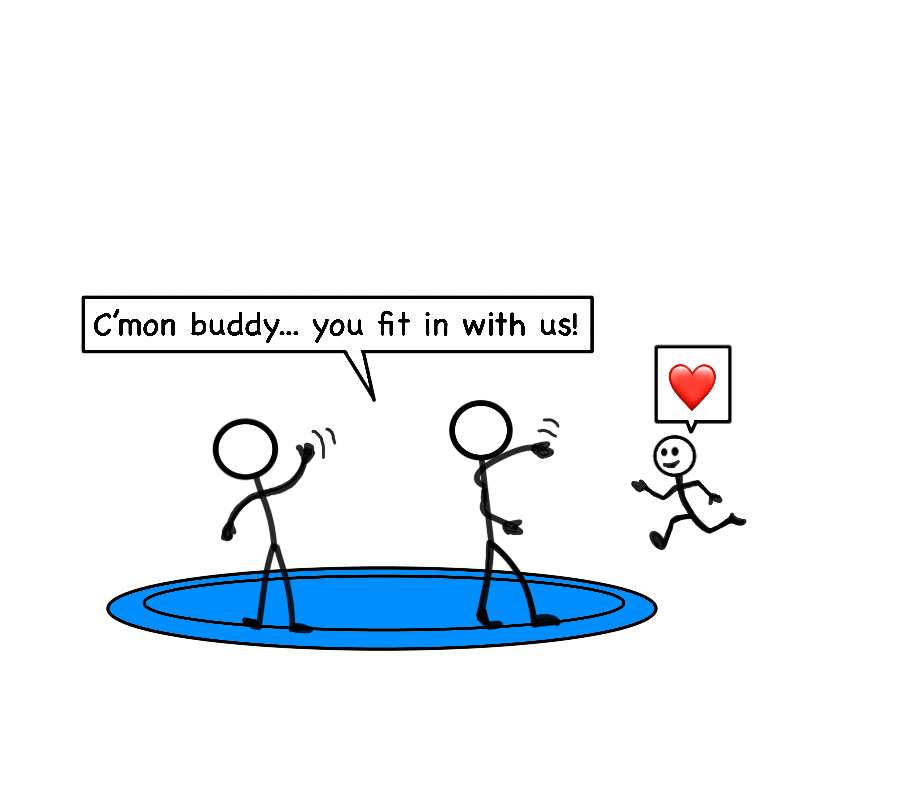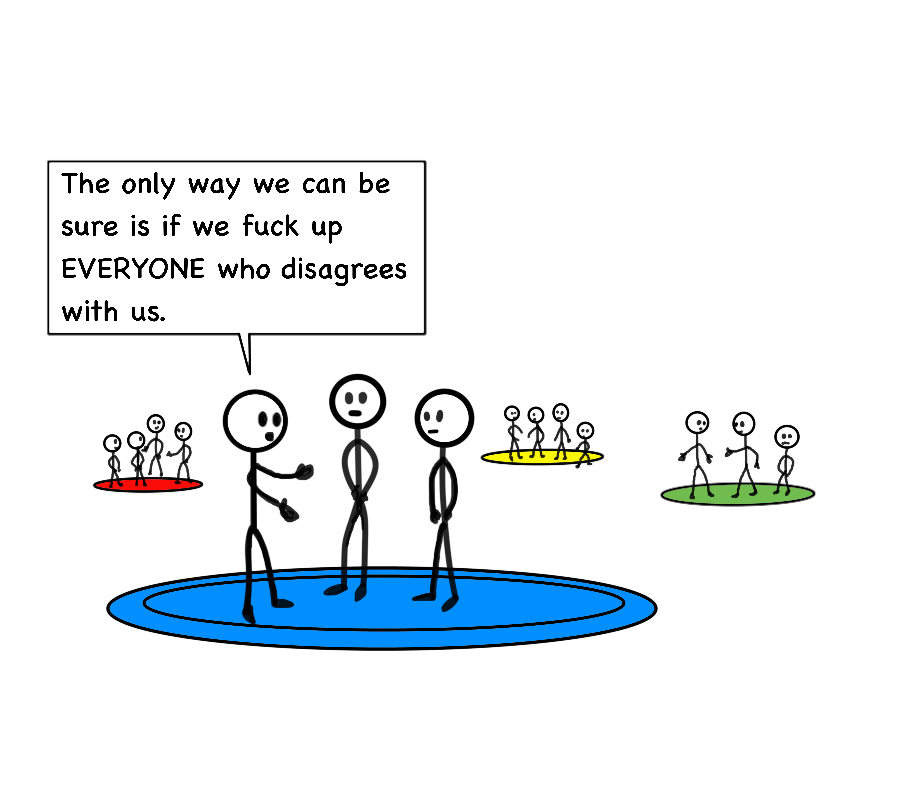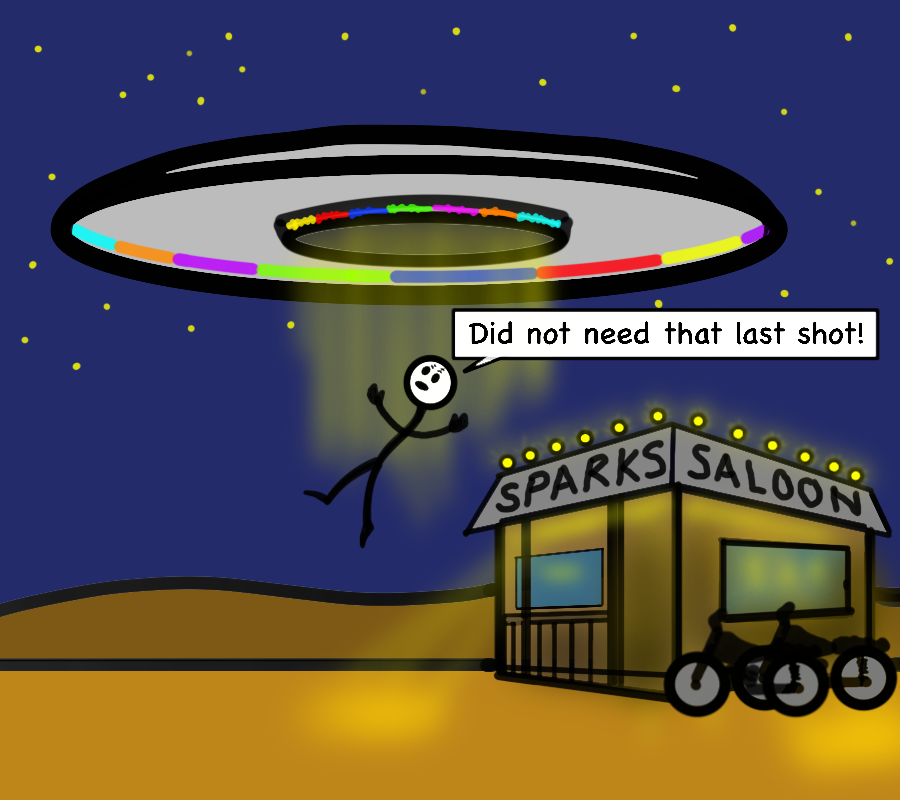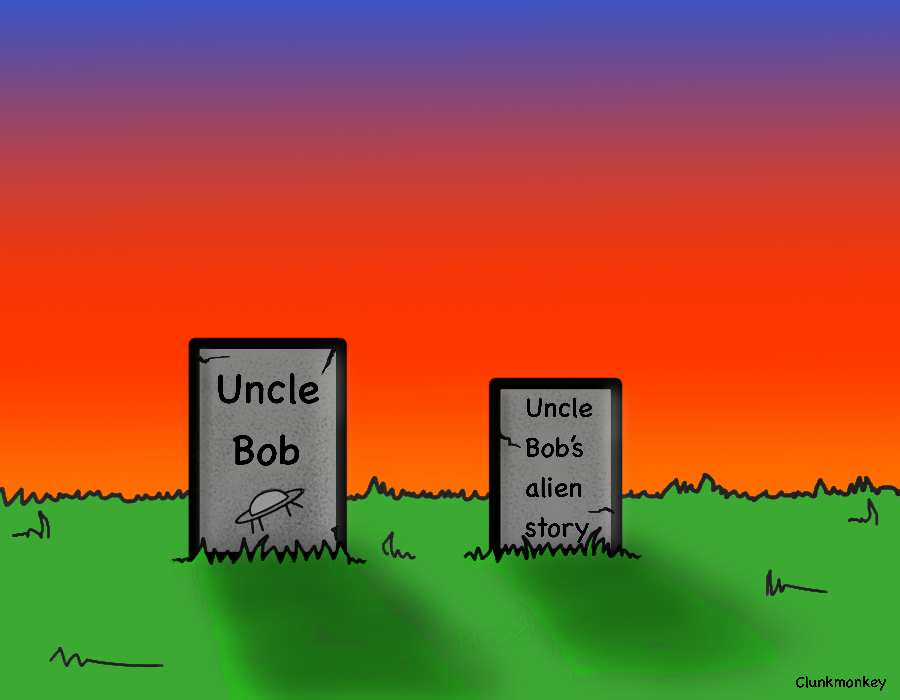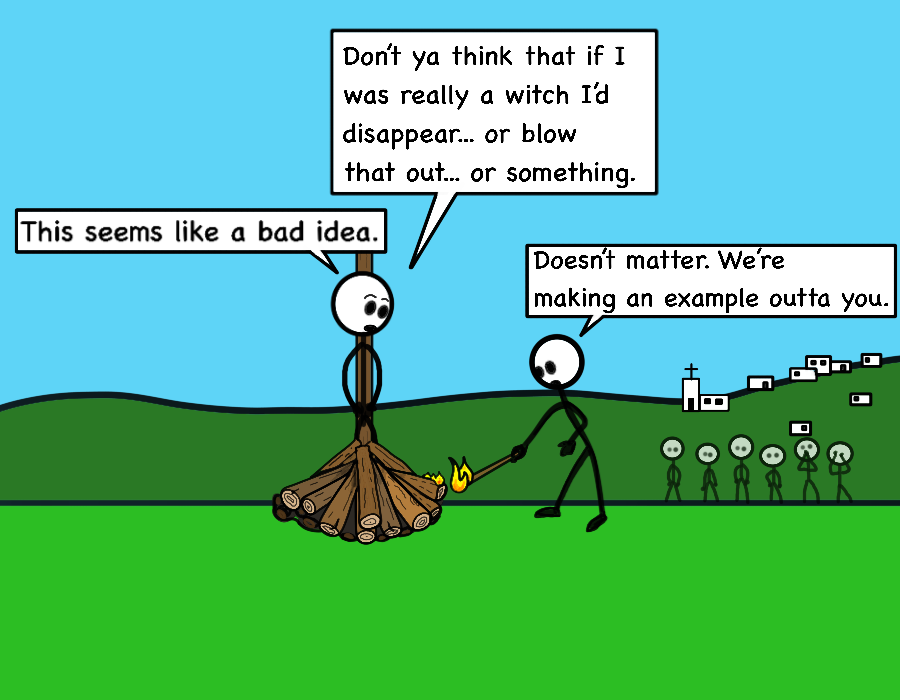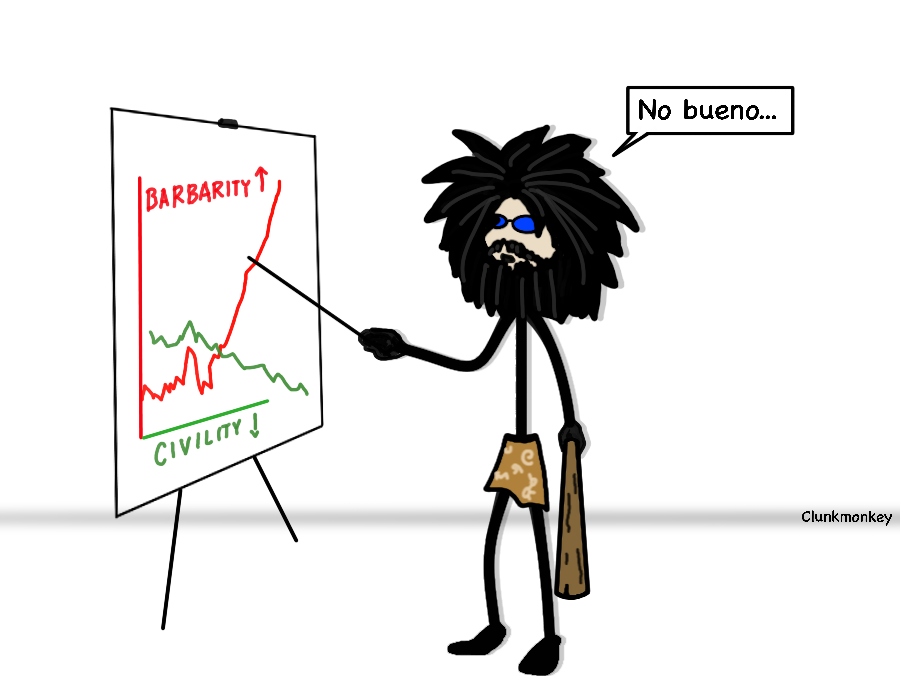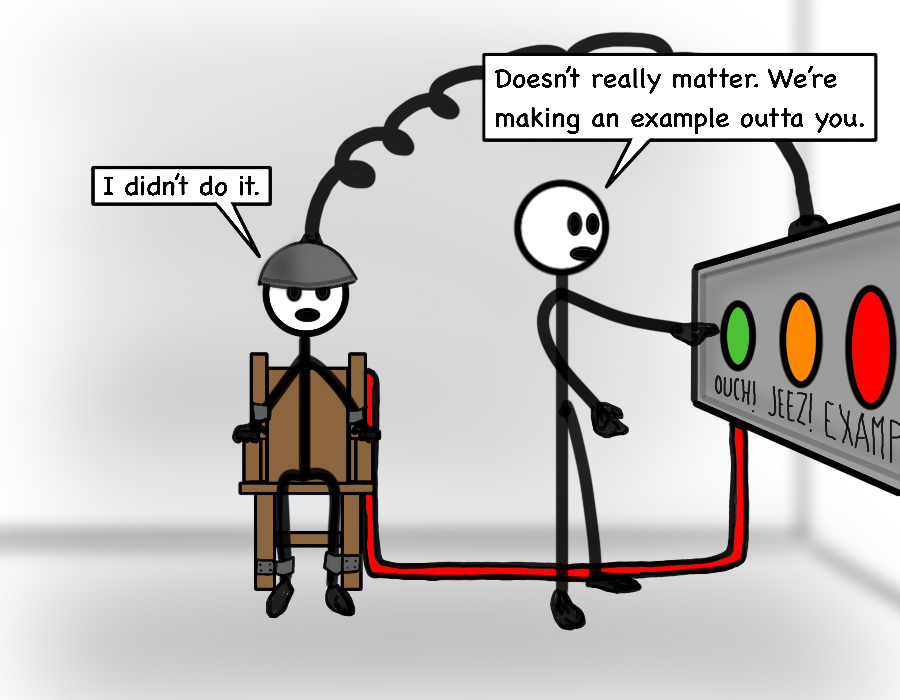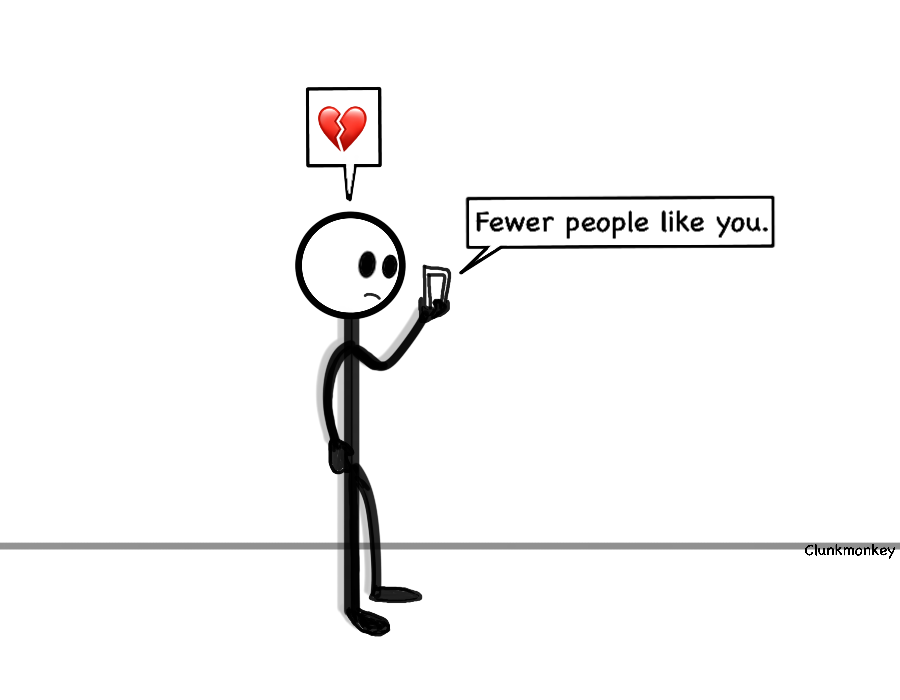In part one we took a tour of the ground floor… the brain.
We talked about consciousness and thought and the internal forces that underlie it all.
Now we move up a level… the external influences.
Everyone of us has a storyline.
We filter the world through our storyline. And… to a very large degree, it becomes a self fulfilling prophecy.
Naturally, we think we created our storyline…
… it’s Unlikely that we did.
It’s also unlikely that they came up with it. Because long ago in a tough environment far away…
The main function of stories is to generate behavior that benefits the group.
In other words, we are all brainwashed.
That’s not as bad as it sounds. Please and thank you make the world a happier place.
Tribes who make their little ones repeatedly pledge their allegiance benefit from stability.
But… extremism. Kids raised in extreme environments are permanently stunted in one way or another. Imagine what happens when the people you trust install a fucked up story about the superiority of a race… or a nation… or a god, as your base filter.
Stories are how we create us’s and them’s.
And how we signal which we are.
This is also a mixed bag. It’s good to know that there is literally a team for everyone.
But… extremism. Sometimes those teams are counter-productive to the others.
A story is like a virus. It needs to be catchy… contagious to survive.
For a story to be catchy it needs to be simple and broadly based.
Uncle Bobby’s story about how aliens plucked him up outside of a bar in Sparks, Nevada and performed several unmentionable tests on him… ultimately finding that he was too smart for their plans to control his mind and turn him into an extraterrestrial version of the Manchurian candidate… the Triachus seven traitor… is not simple. It’s also highly Bob focused.
Yes, it’s a good story. And Uncle Bob tells it well. So it’ll have a good run.
But… it’s not catchy. When the sun sets on good ole Bob it sets on his story too.
Another thing about stories… the good ones don’t kill their hosts. Not too quickly anyway. And certainly not all at once.
The heavens gate and Jonestown and Branch Dividian Are examples of stories that were somewhat catchy… but since they resulted in the deaths of all of their hosts… simultaneously, didn’t spread.
Finally, stories manipulate our behavior with rewards and punishments.
Usually the reward is a goody… like inclusion. And the punishment is harsh. Way harsher than the goodie is good. Because groups are inherently insecure, and Ug responds more to threats than rewards.
So they get Ug’s attention via unimaginably barbaric punishments. Making extreme examples out of rule breakers.
Total fear may keep Ug in check… but it doesn’t engender a warm and fuzzy group experience. In fact, it has a way of increasing the overall barbarity.
As we became more civilized we refined the punishments. And made their imposition less arbitrary. But the objective remained the same.
And… the refinement continues…
Santa Claus is a great example of a successful story.
(Alert: if you’re still an active member of team Santa… you’ll want to skip this part.)
Behave… make your bed, obey your parents, and once a year you get a goody.
Oh and… don’t forget… asleep or awake… he’s always watching.
Kinda creepy. I dated a woman like this once.
If you don’t execute your end of the bargain… you’ll have to sit on the sidelines, a dirty piece of environmentally damaging fossil fuel soiling your hands, and watch your well behaved friends play with their new flingles and flongles.
Simple. Broad. In group. Out group. Reward. Punishment. The Santa story checks every box.
And notice this: you got rewarded once yearly. Your parents… and society by extension get 365 days of hooligan free behavior.
And you were totally cool with it.
I remember my eight year old asking me how adults could be so worried about “stranger danger”, and still let a recluse who lives with little people and livestock, and wears two hundred year old clothes, break into our house and creep around while we slept.
I assured him that Santa had been fingerprinted and background checked.
I could see the wheels turning in his head… dismantling the story.
In the end, the Santa story was too strong. He wanted to believe it.
In the end, the Santa story was too strong. True or not… he wanted to believe it. Because effective stories protect themselves by becoming a part of our identities.
Ask someone to describe themselves. No one leads off with what they really are: “a human”, or “an earthling.” They describe themselves in the terms of their roles… the stories they are acting out. For example, “I’m a lying cheat… oops… I’m sorry I mean an investment banker.” Or “a wife.” A father.” “I’m punctual.” Dependable”. “Honest.” “A winner.” “A Santa believer.”
In the next chapter we’ll talk about culture. The stories we create together.

